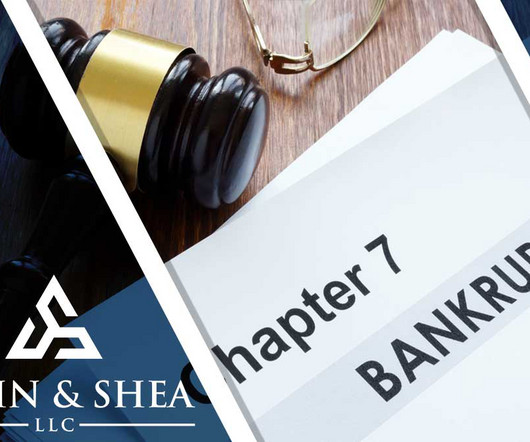Secured vs Unsecured Debt: Everything You Need to Know
Sawin & Shea
NOVEMBER 15, 2023
Declaring bankruptcy will discharge most types of debt but not others. Before you declare bankruptcy, it’s crucial to understand how the law treats the concept of secured vs unsecured debt. First, let’s briefly touch on two of the most common types of bankruptcy: Chapter 7 and Chapter 13.




















Let's personalize your content